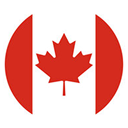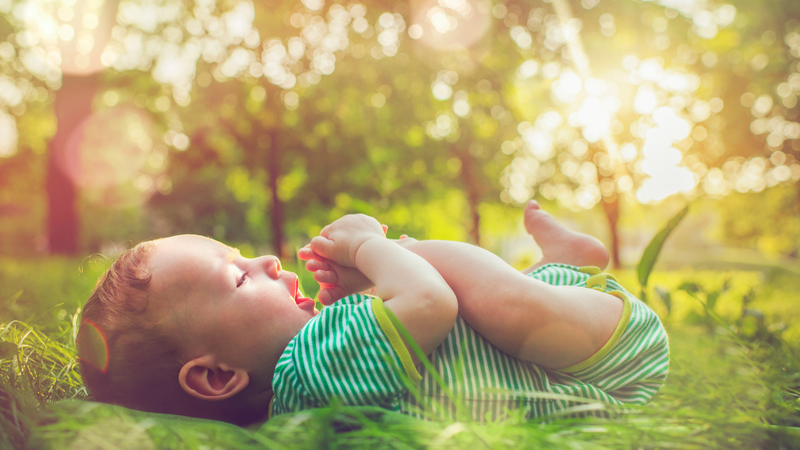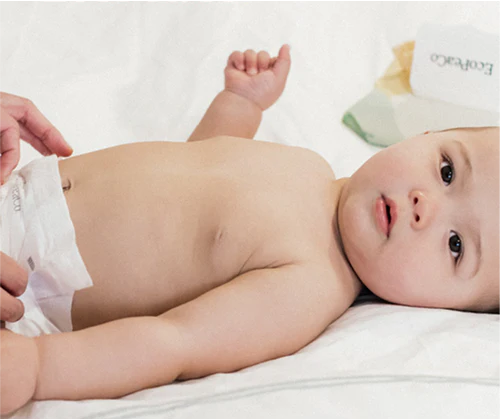In your search for your ideal diapers, you are probably looking for the cleanest, purest and most effective diapers out there, right? You may have seen a variety of acronyms and claims used among various brands, including TCF diapers, which stands for "totally chlorine free".
If you're wondering why chlorine is used in some diapers and why you might want to stay away from it, we will be exploring all that, and more in this blog post.
Chlorine is typically used in diapers and sanitary products to “purify” and bleach the absorbent pulp. In addition, some brands use chlorine to whiten diaper material as consumers tend to associate pure white with cleanliness.
However, chlorine leaves behind toxic residue that can cause a variety of negative outcomes. Read on to learn more.
Side Effects of Diapers with Chlorine
Why shouldn’t you use diapers with chlorine? Read on to learn the many side effects of chlorine in diapers.
Exposure to Dioxins
Chlorine bleaching creates a byproduct known as dioxins. According to the World Health Organization (WHO), continued exposure to dioxins can harm our children's reproductive and immune systems, alter liver function, disrupt hormones, and cause cancer.
Dioxins can also cause developmental problems and delays. They’re stored in fatty tissue and are therefore extremely difficult to eliminate from the body. They typically remain in the system for 7-11 years after exposure.
The Environmental Protection Agency (EPA) has found that dioxins are a likely human carcinogen and “persistent, bio accumulative, and toxic chemical.” Sadly, dioxins are present in some brands of baby food, bath products, and other common items.
Fortunately, you can significantly limit your baby’s exposure to dioxins thanks to TCF diapers from EcoPeaCo. Their chlorine-free formulations mean you can rest assured that they won’t introduce dioxins into your baby’s body.
Increased Risk of an Allergic Reaction
While diapers that use chlorine can potentially cause the long-term health effects we’ve mentioned, these diapers also have a higher chance of causing an allergic reaction than TCF diapers.
The most common allergic reaction to non-TCF diapers is an uncomfortable rash. Rashes may worsen if the baby is continually exposed to diapers produced with the use of chlorine.
The allergic reactions caused by chlorine diapers were one of the main reasons we created EcoPeaCo. Bamboo TCF Diapers. We found that our third daughter was getting painful rashes from the diaper brand we used previously. EcoPeaCo. diapers were our solution to help her and other infants.
Negative Environmental Impacts
In addition to being a threat to babies’ health, disposable diapers made with chlorine have a negative impact on the environment. After chlorine is used to bleach diapers, it enters local water supplies where it mixes with minerals and other elements that can result in dangerous toxins.
These toxins can cause mutations and sterility in wildlife and could even contribute to the extinction of certain species. They can also leach into soil, potentially contaminating food sources for animals and humans.
Factories that use chlorine bleach also emit toxins into the atmosphere, which can result in ozone depletion and respiratory irritation.
The potential side effects of using chlorine in the production of diapers and other household products has caused many countries to ban chlorine bleach or restrict its use.
A baby typically goes through 2,000 to 3,000 diapers in their first year of life. If those diapers were bleached with chlorine, they may be putting your baby at serious risk. Fortunately, the solution is simple: use TCF diapers instead.
ECF vs. TCF Diapers
In the world of safer diapers, the two main categories are TCF (Total Chlorine Free) diapers and ECF (Elemental Chlorine-Free) diapers. Let’s review the differences in ECF vs. TCF diapers.
TCF Diapers
As the name suggests, TCF diapers are made without any chlorine. They’re bleached using oxygen, hydrogen peroxide, or ozone. EcoPeaCo. Bamboo Diapers are made with organic, EcoCert-certified bamboo pulp.
ECF Diapers
ECF stands for “Elemental Chlorine-Free.” These diapers are made from pulp that’s bleached with chlorine dioxide instead of elemental chlorine gas. Chlorine dioxide doesn’t generate dangerous dioxins, making them a generally safer bleaching product. That said, these diapers are still made with chlorine, making them generally less safe than TCF diapers.
Key Takeaways
We are proud to offer TCF diapers that are free of dioxins and other chemicals like alcohol, fragrances, phthalates and more. These chemicals are typically used in order to keep costs down as they are much cheaper, and though cleaner practices can sometimes cost a fraction more than others, we think there is no question that your baby's health and the health of the environment should always come first.
Have more questions? Don't hesitate to reach out to us at support@ecopeaco.com.
FAQ
Are TCF diapers worth the extra cost?
Yes, TCF diapers are worth the extra cost. In addition to being safer for your baby, they have fewer negative impacts on the environment. By using TCF diapers, you can create a safer future for your baby.
Where can I buy TCF diapers?
Source TCF diapers from EcoPeaCo. Our bamboo diapers are made without the use of any chlorine. They also contain aloe for nourishment, are dermatologist tested, and offer super-absorbency for leak-free protection.
EcoPeaCo. Bamboo Diapers are better for the environment, too. No trees were cut down to make the diaper core, they contain 100% compostable packaging, and are made with earth-friendly water-based ink.
Are TCF diapers better for sensitive skin?
Yes, TCF diapers are a better choice for babies with sensitive skin. Diapers made with chlorine are known to cause allergic reactions. If your baby experiences chronic rashes, they may be caused by your diapers. Switch to EcoPeaCo. TCF diapers to calm irritation and reduce the likelihood of allergic reaction.



